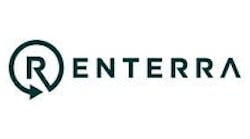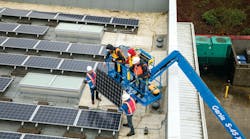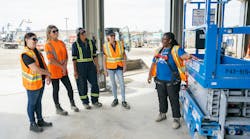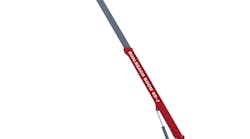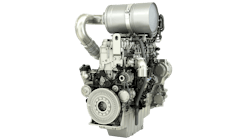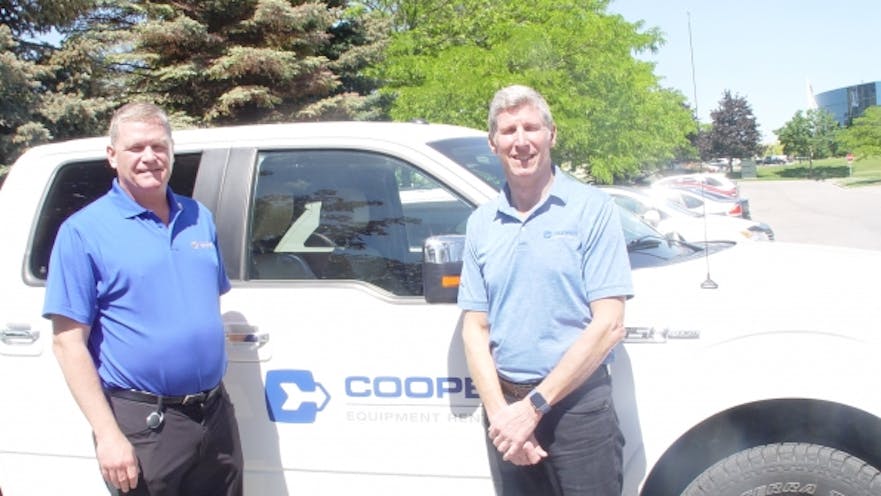A strong management team, a creative, inclusive atmosphere and capital backing has Cooper Equipment Rentals on the growth track.
Cooper Equipment Rentals was a successful rental business with branches in the east end and the west end of Toronto. CER covered the GTA – the Greater Toronto Area – well. It was a respected brand that had been around since 1972, with a strong customer base of successful contractors, a loyal efficient staff that worked hard and took good care of the customers and a well-rounded fleet of primarily compact equipment.
But Darryl Cooper wanted more.
He grew up helping out at the rental center founded by his dad, Gord Cooper, doing all the things the sons of owners do – working in the yard, sweeping floors, painting machines, scraping rust off of equipment. After college he came on full time and progressed through basically every area of the business including outside sales. In 2003, Cooper bought the majority of shares from his father, who was beginning to transition towards retirement.
Along with minority shareholders Henry Michael and John Dolson, Cooper continued to build the business and the brand for the next seven years.
“Then in 2010, a couple of life events got me thinking about what the future of this company looked like, either with me or without me, and I felt like I needed to bring in some help who could help us get to the next level,” Cooper says.
It was around that time that Cooper met Doug Dougherty at a trade show in Toronto. He had known Dougherty as a competitor over the years and they’d always had a good relationship. The two men struck up a conversation. Dougherty was looking to acquire a rental company to get back into the rental business.
Dougherty had a similar background, growing up in the rental business. His father was the owner of Ray Gordon Equipment in Toronto, a company that had been around since the 1940s. Dougherty acquired Ray Gordon from his father in 1983, and grew the company into one of Ontario’s largest independent rental companies before selling it to United Rentals in 1998.
Dougherty worked as a regional fleet manager and eventually became strategic sourcing manager in the Greenwich, Conn., headquarters, and was promoted to vice president of fleet operations in 1999. He later moved to the Midwest region near Chicago and ran a large operation in the Midwest for United. In 2005 Dougherty moved back to Canada and did mergers and acquisitions and realty services for United before leaving the company in 2006.
Dougherty then worked for a private equity firm and got involved with an industrial services company and making investments in that industry. Soon, however, he began to look for an opportunity to get back into the equipment rental industry leading to his conversations with Cooper.
The two men talked over a period of nine or 10 months in 2010 about what both of their goals were. Cooper wanted to grow the company to a larger scale. Dougherty was the perfect partner, having come from a similar background of running a small independent rental company, but combining it with experience on a national level in the U.S., the management of a larger level of fleet and supply chain management as well as the world of finance, private equity and acquisition.
“You can go out and hire the greatest operations guy in the business or hire the best sales guy in the business, but I felt like I needed more than that,” says Cooper. “I felt like I needed a partner in the business, somebody who was invested, who had some skin in the game, and was connected and would share in the growth going forward. Having somebody I could bounce ideas off of; the confidence that when I think something is right to have somebody else that says ‘that makes sense, let’s do it.’ When you have that kind of confidence, it opens up a lot more doors, it gives you the ability to go forward and believe in what you’re doing.”
“I got marketing experience, finance experience, fleet management experience, all those things I would not have had exposure to had I just carried on on my own with Ray Gordon,” Dougherty says. “Darryl had carried on on his own. It’s kind of lonely. You’re just the only guy and all the risk is on you and everybody is counting on you. As Darryl pointed out, having a partner to work with whose skills complement your own, similar backgrounds and experience but different skill-sets developed along the way that can fit together to make a partnership and it makes it stronger. For us it has worked really well and a lot of partnerships don’t. People tend to partner with someone who thinks the same way. Not necessarily the right thing to do. You want to have someone who has the same basic values as you have, and sees the world the same way, but maybe approaches decisions a bit differently.”
Also, both Cooper and Dougherty have always had similar views on fleet, pre-dating Dougherty’s role at United Rentals, which tried to simplify the supply chain to a limited number of suppliers in different equipment areas. “Darryl’s and my philosophy sort of preceded United Rentals on that,” Dougherty says. “Both at Ray Gordon and at Cooper we had the same sort of approach. Stick with your suppliers through good times and bad times, and work with the best people and the best brands.”
Growth spurt
Once Dougherty was on board, the new Cooper leadership team launched its expansion effort. The first step was an investment by a private equity company -- Halifax, Nova Scotia-based SeaFort Capital -- which gave Cooper the financial backing it needed in exchange for a majority ownership stake in the company. From there, CER acquired another GTA-based company, City Rentals, in 2013.
“City Rentals had a very similar fleet mix and business to what we had,” says Cooper. “They had some terrific customers and some really fantastic employees. It was a tremendous acquisition for us. As one of our guys said, ‘2+2=8.’ We took their strengths and our strengths and put them together and we were exponentially better. One of City Equipment’ owners Scott Mackinnon is still with us and plays an important role in business development in the GTA, and is part of our leadership team. They had the ability, with our equipment fleet behind them, to offer more to the customers that they had built really strong relationships with over the years.”
Next acquisition was Albion Rentals in 2014, located in Bolton about 50 kilometers northwest of Toronto. But it was the acquisition of SMS Equipment, a company one-and-a-half times its size with about 15 branches spread throughout a huge geographic area in Ontario and Quebec, which dramatically changed Cooper.
“That was a real transformational deal,” says Dougherty. “In terms of people, they were twice our size so we went from about 100 people to 300 people.”
The cultural differences between the companies were significant, with SMS having been owned by a Japanese company Sumitomo.
“Cooper Equipment Co. was a culture of six stores working in the GTA, a very tight group of stores that shared equipment, and it was very easy for all the managers to meet regularly and all of a sudden we went from a company like that to a company doing business over a huge geographic territory,” says Cooper. “You have Quebec, northern Ontario, and eastern Ontario. You’ve got two cultures colliding. One was very entrepreneurial, and the other was carved out of a big public entity where their concerns were more around corporate governance and compliance than entrepreneurial spirit. The meshing of those two cultures was a challenge but the people from SMS were so open to it that although it was a big challenge to get it done, we certainly didn’t face any resistance.”
“The challenges were more around systems and operations,” adds Dougherty. “How do we work out certain processes now that we expanded beyond just the GTA with the six locations we had in close proximity to one another? Culturally it was really exciting for the SMS people to be exposed to our culture and somewhat freeing because decision-making in our organization is not pushed down from the top. Decision-making in our culture is more at the grassroots level at the branches or in the sales teams that operate within the geographies. So people found that refreshing and empowering.”
Cooper operates more by a set of values and a roadmap. “Make decisions that fall within them and you’re not going to get in trouble for doing that,” Dougherty says. “And you’re also not going to get in trouble for failing. Trying something and failing, we’ll ask ‘What did you learn from that?’ It’s not ‘Don’t ever do that again.’ That part I think people really liked.”
The SMS people embraced the more open culture of CER, with very few employees leaving.
Another major change that occurred with the acquisition of SMS was that SMS was primarily an aerial equipment company while Cooper was a compact equipment specialist. There were a few SMS employees that were more oriented to renting almost exclusively aerials primarily as a low-cost provider and had difficulty adapting to a different fleet mix and philosophy. At the same time, Cooper Equipment Rental embraced having a higher focus of aerial equipment.
“SMS was a game-changer for us,” says Cooper. “But 50 percent of the rental industry is aerial equipment and if you’re going to become a national company like we want to do, and you want to grow the business the way we see ourselves growing, we need to be part of that aerial business. We’ve taken that on, but we’re still compact equipment specialists.”
“General rental is what most of our branches would present to the market,” Dougherty adds. “And for some of the branches that were in the SMS network, that was a pretty big change, because they were in some cases 80 percent aerial equipment in those branches and that percentage has come down and changed the fleet mix to more of a broad-based general rental offering. So there was the odd guy who just doesn’t like that and just wanted to rent big booms cheap and that mind-set didn’t really fit with what we wanted to do.”
Cooper and Dougherty see the company as a full-line service rental company, with every store having the ability to deliver the equipment and fix it, with each branch having its own road service mechanics.
“A little different from some of our competitors,” Cooper says. “Some have a hub-and-spoke type mentality but we find giving the branch manager the ability to serve his customers and have complete control and direction over all the tools that he’s got in his branch provides the best customer service experience. And it’s proving out. We’re growing organically as well as through acquisitions. So it’s not just growth through acquisitions; we’ve got customers coming back.”
Go west, young man
By the end of 2016, Cooper Equipment Rental had spread out pretty well in Canada’s large eastern provinces of Ontario and Quebec. The company was managed in four separate regions – GTA West, GTA East, Northern Ontario, and Eastern Ontario/Quebec (Alberta since added). CER also started a trench safety division in August of last year and so far it has exceeded the company’s expectations.
“It complements our customer base quite a bit,” says Dougherty. “We have a good presence with a number of utility contractors and sewer and water main contractors that we were doing general rental business with, and so we thought it would be a nice complement, a way for us to provide a broader service to them. I’ve had quite a bit of experience over the years with trench safety. Our company Ray Gordon Equipment back in the ‘70s had a trench safety division, we had steel trench boxes and aluminum hydraulic shoring and we kind of pioneered that business here in Ontario. So I watched that industry over the years and have seen the dynamics that are in play there and the trends. It all comes down to people, and we were fortunate enough to have some good people that could start that division.”
The company’s next natural expansion direction was west to Alberta. 4-Way Equipment Rentals was owned by Canadian Equipment Rental Corp., which had in recent years diversified into the oilfield rental business and, for a period of time, the waste management industry, putting less attention into construction equipment rental. CERC was exploring strategic alternatives for 4-Way and Cooper was a natural fit. 4-Way had a solid general rental business that worked with Alberta construction and industrial contractors. Its staff responded enthusiastically to a company that was fully focused on equipment rental and was eager to make the investments necessary for it to prosper.
With its flag planted in Canada’s west, CER then acquired another aerial-focused company Alberta Lift, adding two more branches to the network. In the coming months, CER will work on re-branding the newly acquired aerial rental company and will work on integrating compact equipment into its aerial-focused fleet.
The Cooper Difference
Although there are always logistical challenges, the Cooper management has found the integration of its acquisitions to be relatively smooth. More important than the challenges of integrating fleet, software and other systems was philosophical integration. The guiding factor has been a value system known as the Cooper Difference.
The acquired employees have been almost universally eager to work for a company where the management empowers its staff and trusts it to make decisions. SMS and 4-Way were essentially carved out of public companies with a less trusting philosophy. But the CER staff had worked out a set of guiding principles that it asks employees to buy into and participate in.
The Cooper Difference charter statement says “Discerning customers count on Cooper Equipment Rentals for smarter equipment solutions. Working together as one professional team, we bring energy and fresh thinking to our customers’ everyday needs. We are honest, fun-loving people with a passion for the business. We put customers first.”
The statement is not just a slogan for employees to memorize. Each branch puts together a poster collectively with each person contributing ideas about what the different points mean to them. Also Cooper and Dougherty organize evening dinners for new employees in different regions so they can meet everyone and introduce people to the company values, enabling discussion with everybody contributing.
“My idea of a smarter equipment solution might be different than the yard guy or a mechanic as it relates to their job, so the Cooper Difference sessions that we do are an opportunity for those people to put their voice into the room as to what different points mean to them,” says Cooper. “So they can connect to the values that we have. We like to have fun, that’s another really important value that we share. So one person’s idea of what having fun in relation to the workplace is might be different from somebody else’s. Doug and I travelled last year to every single branch and we did [this exercise] with them, and this year we’ve been bringing the branches together by regions and [discussing] it with all the new employees.”
The Cooper Difference statement is loose guidelines people are asked to use to guide their decisions. “So if you’re faced with a decision and you think about what our values are and you make a decision in line with that, you’re not going to get into any trouble,” says Cooper.
On the runway
Further growth and expansion will certainly be on the horizon for Cooper Equipment Rentals, which hopes to become a truly national Canadian rental company. At least in the relatively short term, the Canadian economy looks strong enough to support continued growth.
“I think there’s still a fair bit of runway,” says Cooper. “The West is poised to start to rebound. The low Canadian dollar versus the U.S. dollar speaks well for manufacturing in Ontario and Quebec. The government seems to be willing and ready and able to spend money on infrastructure. The immigration that comes to Canada is still very strong and that immigration drives the need for more infrastructure, building more houses and schools and hospitals. Those things speak to a pretty good future in the short term, the next three to five years.”
“I’m really optimistic about the economy of Canada,” adds Dougherty. “We’ve got a very diverse population, and we’ve got a very inclusive style of government. It’s a place where people want to live. The economy in Alberta has been beaten up badly, but even that’s finding its way back. Not to say there won’t be ups and downs because there will be. But generally speaking, it’s a growth picture over the long term.”
